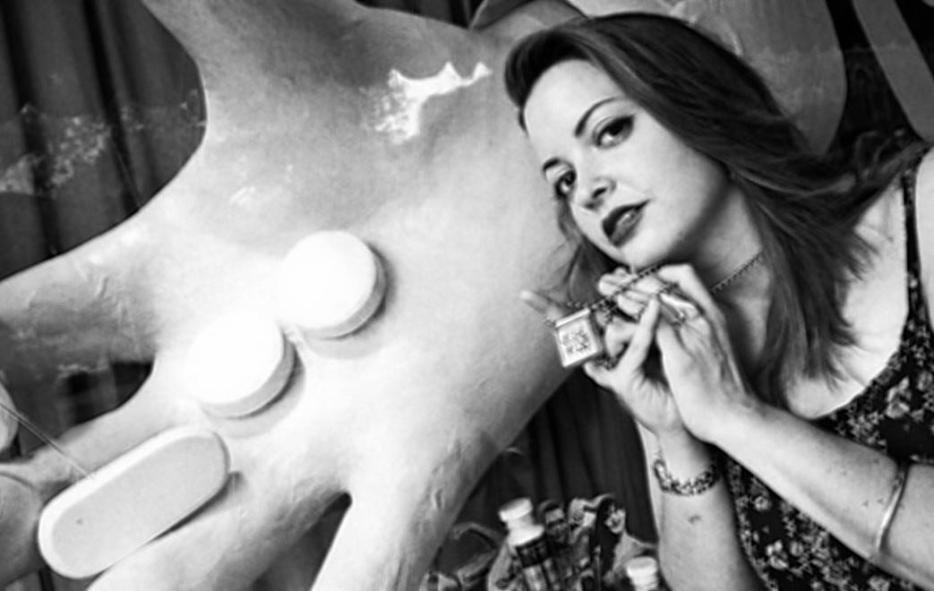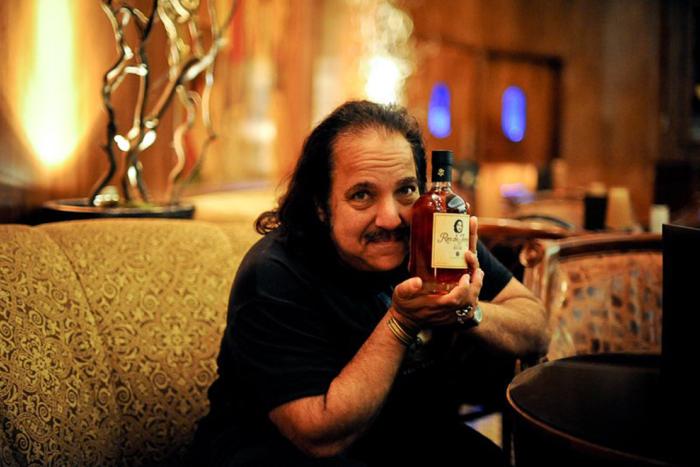“It’s all in the art; you get no credit for living” — V.S. Pritchett
Fans of personal journalism should note that in June, Little, Brown will publish Beautifully Unique Sparkleponies by Minnesota Vikings kicker Chris Kluwe, “a collection of uncensored personal essays on topics ranging from faith to government... to human rights.” As well as addressing a current dearth of football-kicker-lit (and bearing the best book title ever) Kluwe’s collection is another log in the fiery debate over first-person non-fiction. We had Elizabeth Wurtzel’s New York Magazine essay, an amalgam of confession (she’s sad and lonely) and humblebrag (she’s rich and, at 44, still fits into the 501 jeans she wore in her 20s) and then we had the backlash, in Gawker and Jezebel and Slate. The backlash goes something like this: enough. Enough of authors mining their crummy childhoods, crummy sex lives and crummy memories of junior-high volleyball coaches with busy hands. There’s no art in confession, it’s a bucket of hot water splashed on the floor that the reader has no choice but to mop up. Write what you know but not necessarily what you’ve endured.
That’s fine, but then sometimes Too Much Information can be dramatically gripping, so where to draw the line? The writer Ian Brown once told me (if I can get personal here without sparking a backlash) that there’s a difference between confession and candor. Confession is loud and knows what it wants: absolution, forgiveness. Whereas candor is quiet, a sincere attempt by the writer to figure out his world even as he risks getting it wrong. So both Elizabeth Wurtzel and Montaigne write about love but one screams and the other whispers, one paints big pictures and the other settles into the small details. She confesses, he’s candid. But then she’s interesting and he’s dull, so what to do? I can only say there are no rules and that in the right hands subjectivity is an art: maybe the trick is to sort the right hands from the wrong hands, and that’s a reader’s task.
For example, is this confession?
“Has anyone yet said publicly how nice it is to write on rubber with a ballpoint pen? The slow, fat, ink-rich line, rolled over a surface at once dense and yielding, makes for a multidimensional experience no single sheet of paper can offer. Right now dozens of Americans are making repetitive scrolly designs on the soft white door-seals of their refrigerators, or they are directing their pens around the layered side-steppes and toe-bulbs of their sneakers...”
And so on. This is Nicholson Baker, who writes personal essays about universal experiences and dirty novels like House of Holes in which people have sex with disembodied human limbs. The quote is from an early essay called “Rarity” in which he celebrates solitary guilty pleasures, like writing with a ball-point pen on the blade of a Rubbermaid spatula. It is confession, in a deliciously minor key. You’re not supposed to write on a Rubbermaid spatula. But it feels good. The fact that it’s a rare guilty pleasure only makes it more fragile and kind of sad: you may only have written on rubber once in your life and may never again, but the memory is vivid and you miss it. “Rarity,” he says, “is an emotion as much as it is a statistical truth... Comprehended in the notion are all sorts of contributory pangs: brevity, chances barely missed, awe, the passing of great men and glorious eras.”
Wurtzel is less interested in the universal than in explaining why she’s different from the rest of us.
In his confession of writing on appliance door-seals he runs the risk that he’s the only one on the planet who’s ever done it, but he’s working a hunch: that you’ve done it too. He knows your secret. You enjoy rare subversive pleasures, like writing on rubber. Once he’s drawn the blood of recognition he can cut deeper and connect the rubber business to the “passing of great men and glorious eras” and that’s even sadder, but no less true: we have our little pleasures and they disappear; great men and moments in history also disappear, as if they’d never happened. Rarity means transience: nothing lasts. Later he asks, have you ever felt “a peculiar sort of worry about the chair in your living room that no one sits in?” Again, he confronts the risk that there’s no universal here, but his instinct tells him we all have at least one neglected chair, and yes, we feel bad for it. I myself have sat in my own lonely chair out of guilt. It is not the chair’s fault. This is also a confession. By admitting to comforting my lonely chair I risk looking like a lunatic, and the stakes are deceptively low: what a small confession. But the implications, as Baker knows, are huge: how many other rare pleasures exist that we share but overlook because we’re distracted and forget to pay attention to that which is in reach? “Rarity” is a smell-the-roses essay with a kind of risky obsessive-compulsive framing that catches the reader with detail and not the splashed bucket of hot water.
Baker’s efforts to connect are humble enough that we encourage the connection: come on, we say, you’re on to something. It’s human nature to buoy up his underdog thinking. He’s confessing to crimes so tiny (writing on the toes of his sneakers, feeling bad for his living room furniture) that we can’t accuse him of showing off or begging for absolution. Instead he pokes gently at a universal experience: enjoy the rare, because it too will pass. Wurtzel, meanwhile, is less interested in the universal than in explaining why she’s different from the rest of us. “I am a free spirit,” she says in the New York Magazine essay. “I do not know any other way to be. No one else seems to live as I do. In a world gone wrong, a pure heart is dangerous.” In this case it’s human nature to push back: really, your life isn’t all that bad given the sales of Prozac Nation.
When I worked at CBC I took a seminar in interviewing with John Sawatsky, who understood human nature and the value of humility. His lesson was: if you take a hard position human nature will always push back in counterforce. For example, consider the classic interview with the man who saves a dog from drowning in a lake. “You’re a hero,” says the interviewer. You know the response: “No, I was only doing what anyone else would do in my situation.” In other words: don’t overstate the case, I’m not like that. Now, if the interviewer says, “I guess you only did what anyone else would do in your situation,” the man bristles. “Actually,” he’ll say “it was pretty hairy. I could have drowned myself.” In other words: don’t understate the case, I’m more than that. Always the impulse to temper extremes.
So when Wurtzel says, “For a while after my first book came out, I went home with a different man every night and did heroin every day,” the reader is forgiven for asking: every night? She pushes, we push back. Meanwhile, Baker, in the essay on rarity, quotes the poet Paul Valery: “Every mind considered powerful begins with the fault that makes it known.” In other words, if you think you’re a genius you won’t convince me by saying so: by telling me you’re a genius I have fresh evidence you’re not. It’s a brisk rhetorical point and Baker has the humility not to make it himself: he quotes Valery. The reader gives him points for not showing off, for ceding the stage to a sharper piece of prose than anything he could dream up, only by now we think him capable. Because he’s not pushing we have no impulse to push back: he’s just nudging, seeing where it takes him.
Is this confession?
“One summer when I was fourteen I took care of an orange cat at a house owned by two minimalist painters. All their walls were flat white, and they had many of their paintings up—long, narrow paintings, with silver metallic paint sprayed in from the ends, dripping subtly. The lonely cat roamed this minimalist house, meowing. I read issues of Artforum neatly stacked on their coffee table. There was an article about an artist who created an empty room with a sloping wooden floor. The artist, whose name was Vito Acconci, ‘pleasured himself’ under the sloping floor, while visitors walked around the room overhead. I fed the cat, pleasured myself, and rode my bike home.”
Quiet candor encourages you to trust a writer, the way it does with normal people. He’ll reveal things about himself not as self-therapy, but as the topographic lines on the map of the world he’s trying to draw. Loud confession, on the other hand, prompts suspicion: the writer has some dark motive.
Baker again, from an essay of vignettes called “One Summer.” If you read enough of him you’ll know he’s the kind of peculiar creature who would use the term pleasuring myself when he was 14, so he’s not being precious or giggling behind his hand. This is as close as he gets to Wurtzellian confession in his essays (the fiction, again, is another story) but it’s an odd kind of confession: he is not confessing to masturbation so much as confessing to being somehow aroused by an anecdote in Artforum (itself a confession), or by the whimsical atmosphere of the house owned by minimalist painters, or the drippy paintings themselves. Even better, he is confessing to a true universal, which is that a 14-year-old boy in an empty house is going to jack off as it’s a 14-year-old boy’s lifework to look for the private opportunity to do so. But, only after feeding the cat: we reward him for his sense of priorities. Consider how the mention of heroin would’ve changed the story, or the claim that he’d pleasured himself every night at the house of the minimalist artists. As it happens, the image is so quiet it’s soundless, except maybe for the sound of the bike chain as he’s pulling away from the house.
This is candid personal writing: there is no reason to believe it’s not sincere. It doesn’t even matter if the writer himself isn’t sure what it means. He’s just saying. But saying it with rhythm and imagery and economy of language. Quiet candor encourages you to trust a writer, the way it does with normal people. He’ll reveal things about himself not as self-therapy, but as the topographic lines on the map of the world he’s trying to draw. Loud confession, on the other hand, prompts suspicion: the writer has some dark motive. In confession the motive is always forgiveness. Confessional writing unburdens the author (splash!) and puts the onus on the reader to provide absolution or defense.
Maybe Baker got close to this kind of confessional writing with “U and I,” the book-length rant about his near-stalkery obsession with John Updike, a study of the anxiety of influence, but in this case an anxiety worth medicating. He imagines what it would be like to write an obituary for Updike but decides instead to write an appreciation while the author is still alive (the book came out in 1991). Instead of re-reading the corpus, he bases the appreciation on what he can barely remember about the Updike he’s read (and it turns out he hasn’t read much) and winds up circling the idea that Updike is probably smarter and a better writer than he is, but it takes 179 digressive pages. It’s a romp and it’s not really about Updike at all but rather about Baker and his anxiety. In that way it is confessional but may stand as a rare example of stealth confession: you don’t know it’s a confession until a month after you’ve read it. He feeds the cat, pleasures himself (for 179 digressive pages) and then quietly pedals off on the bicycle, leaving the reader to sort things out at his own pace. The other kind of confessional writing wants attention and redemption on the spot. “I have always made choices without considering the consequences,” writes Elizabeth Wurtzel, “because I know all I get is now. Maybe I get later, too, but I will deal with that later. I choose pleasure over what is practical.” What matters is now.
But at least she’s more interesting than Montaigne. And if you live in the moment, like she does, you want gut reaction rather than a month’s digestion like Baker demands in “U and I.” I would only say a lighter touch and humility go farther in personal non-fiction than cast-iron certainty and a plea for absolution. Wurtzel has made up her mind before the pen hits the paper: she has a “pure heart” and no one understands her like she does herself. With Baker you feel like he’s trying to figure out what he means while he’s writing. It’s not as exciting as copping to a heroin addiction but it’s more like how the rest of us think: testing oddball little theories, opening doors to bigger ideas that take some time to sort through.
I have no reason to believe that Chris Kluwe’s writing is at all confessional. Uncensored and personal, yes, but that’s marketing talk. Last year, he wrote a smart essay in favour of gay marriage which went viral. There’s no reason to believe his ideas on faith and human rights won’t be as refreshing, and if he has any thoughts on writing on rubber even better, because I think (if I can be candid) there’s more life to be found in detail than in big loud noises.






